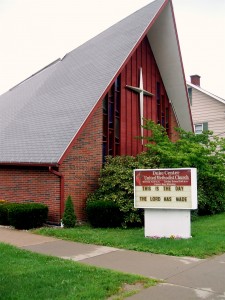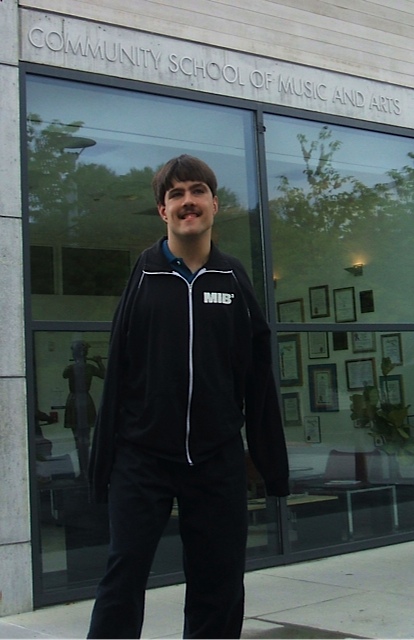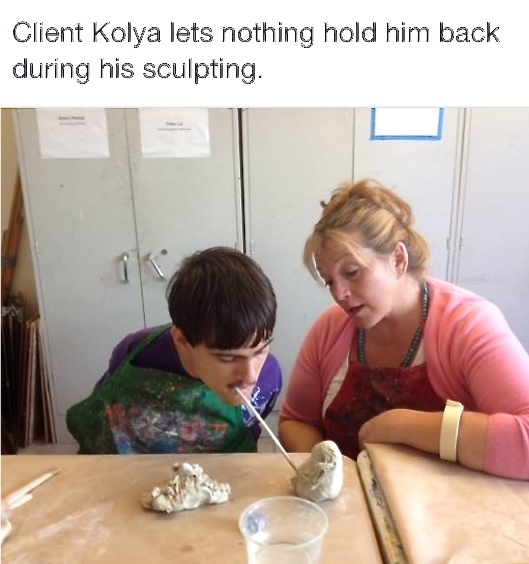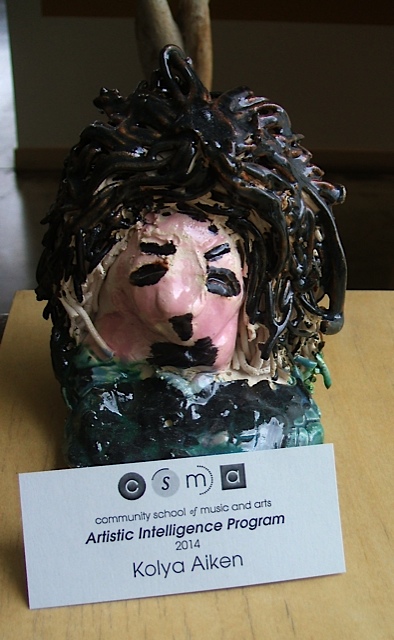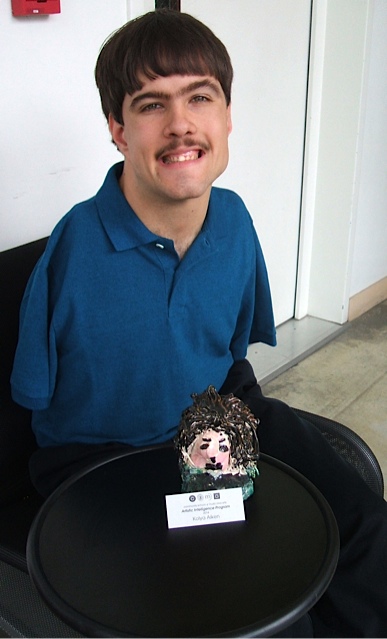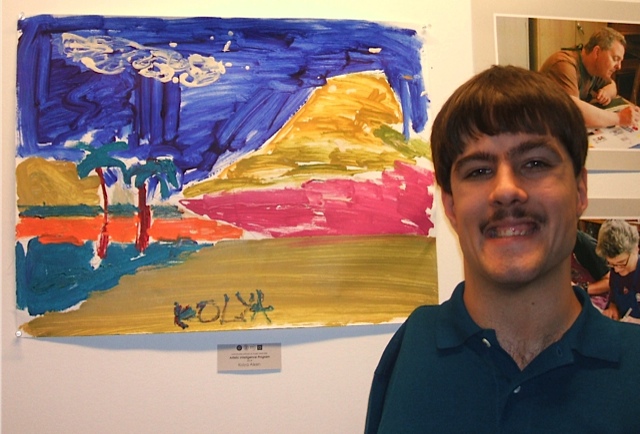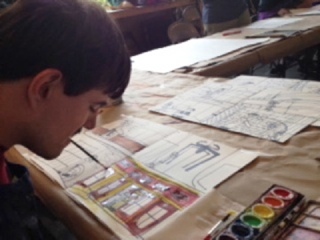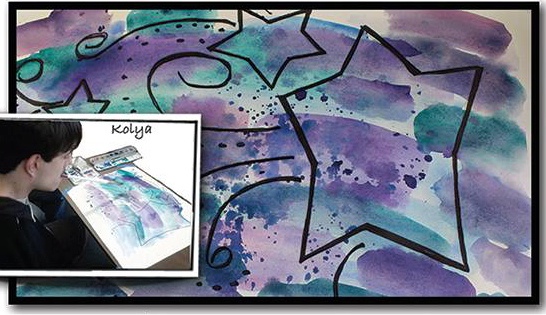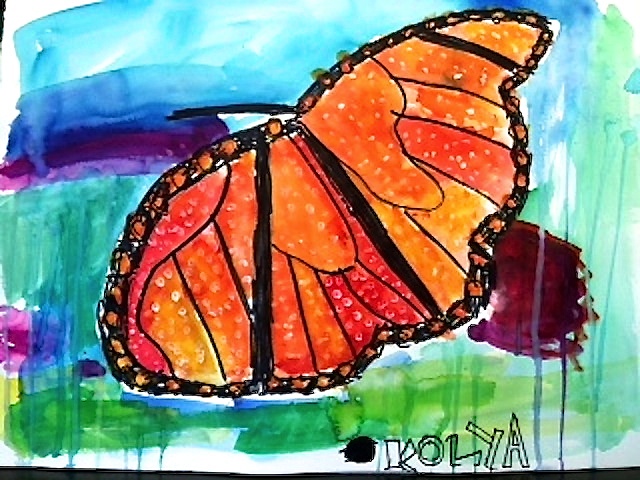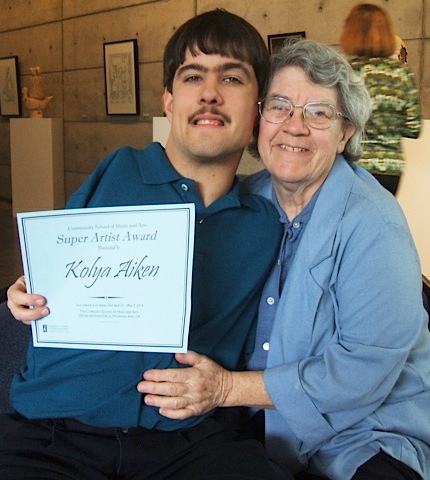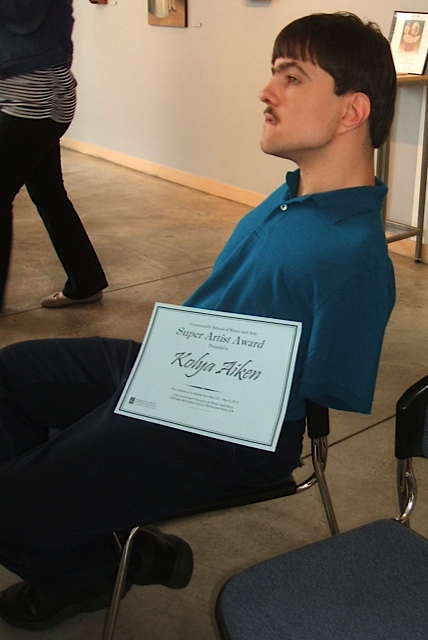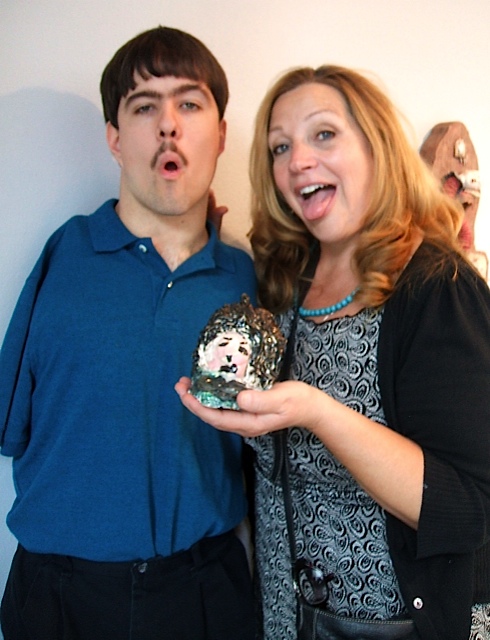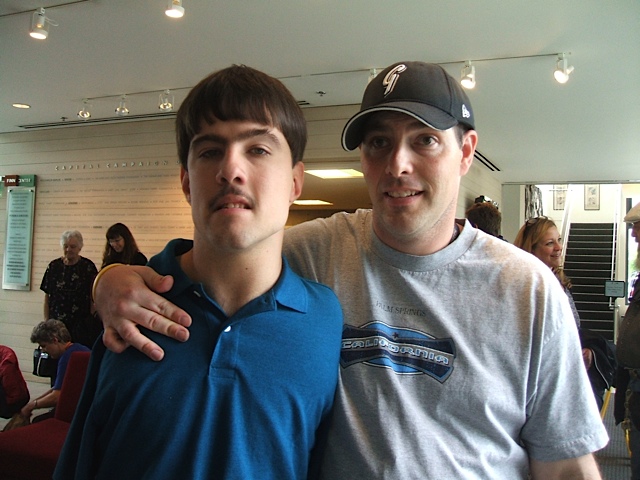Most of my classmates had adjustments to make with transitioning from elementary school to junior high. I likewise had the same and a few extra to deal with. Since my hometown, Duke Center, Pennsylvania, was small, the class size in elementary school was 15 or fewer students per grade. Each of the 1st – 5th grade classrooms had the same teacher all day. This all changed when I entered 6th grade.
For 6th grade, I moved on to Otto-Eldred Junior Senior High School. Along with my former 5th grade classmates, other 6th graders came from neighboring communities that made the class size larger, usually about 25 students per class. I had two 6th grade teachers and for the first time I had to change classes during the school day. This meant I had to learn to speechread two teachers and adjust to their different rates of speech, facial expressions, and mouth movements. It took me some time to adapt to the new circumstances.
I was also taken from class for speech therapy, which had never happened previously. I don’t remember why I never had speech lessons before 6th grade but I do remember being asked to leave the room twice a week to work on my speech (pronunciation of words, inflection, and auditory discrimination) and speechreading skills. I despised it when the therapist would cover her mouth with a sheet of paper or ask me to turn around and listen to what the she was saying without being able to speechread. I was encouraged to watch Walter Cronkite on TV with the sound turned off, and then write a report of what he discussed during his CBS Evening News program. He was one of the most difficult reporters to speechread if I remember correctly. Of course our black and white TV set with a fuzzy picture didn’t make these assignments enjoyable to begin with. I remember I wasn’t fond of speech lessons and felt embarrassed to leave the classroom. I eventually asked Dad to arrange to have my lessons before school during my senior high years, which he did.
I faced different challenges from 7th grade through my senior year. For example, the morning announcements were given over the public address system from the office. I had no idea what was being said and felt like I was missing something important. I didn’t have a clue how to handle this situation and simply sat at my desk emotionally upset.
Up to 7th grade all my teachers were females. Then suddenly, I had male teachers who wore suits and ties. I was not accustomed to speechreading people with neckties where I couldn’t see the movements in the throat. Therefore, I learned to watch the movement of the tie knot to detect the guttural consonants. I don’t think this was something I learned in speech lessons but it was a natural knack for doing what I needed to do to understand without asking for special help.
The structure of the classes was different as well. My parents and speech therapists arranged for me to sit in the front row where I could see the teacher better. That worked just fine as long as the teacher stood in the front of the room facing the class. However, many times they would roam around, talk while writing on the blackboard with their backs to the class, and frequently gave oral tests while standing in the back of the room with all students facing forward. I recall once when I made a fast exit from the classroom and to the restroom to vomit because I was so emotionally distraught. The teacher quickly followed me and asked what was wrong. “I can’t speechread when you are standing in the back of the room,” I cried. The teacher apologized and that never happened again with that specific teacher.
My grades became lower (average to below average and even failing some classes) as I progressed through high school; regardless of how much time I spent studying. I worried and studied long after my bedroom lights were turned off. I’d sneak a small flashlight under my blanket and try to do more homework while my parents thought I was sleeping. My vocabulary was delayed and I had poor reading skills. In fact, the only thing I read was required reading for my classes and with little comprehension at that. Some of my closer friends would share their class notes with me but I continued to struggle academically.
Class discussions were much of the learning experience in high school too. I missed so much of what was being said because by the time I located who was speaking they were close to finishing their comments. This was not only an issue during discussions for the entire class but also in small groups. Please, don’t get me started on history courses. I’ll just say it was close to impossible to comprehend. I learned to hate history with a passion. However, during my senior year, I discovered I should not have had to struggle so hard with history.
My speech therapist and I made a trip to visit the Western Pennsylvania School for the Deaf in Pittsburgh. I knew nothing about such a school and that day I visited a history class. For the first time during a history class I didn’t want to leave the room! The class was watching a captioned movie about whatever topic was being studied. I was in awe. I had never seen or heard of such a thing as captions. I couldn’t believe that right before my eyes were the words on the screen. Even with poor reading skills, this was such a positive experience for me. How I wished I’d had that experience earlier in my schooling. Perhaps my high school could have provided the films for me with captions. Like me, it was probably something my teachers were not aware of either and today I still am not a fan of history.
I’ll stop for now but check back later for more experiences I had while in high school. I will share more about the role of music in my life as well as some social activities.

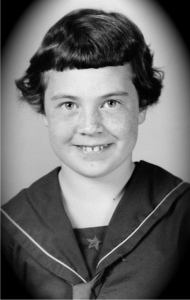 like others did. I had no idea I was missing everyday sounds. How was I expected to know? I knew no differently because I probably never had normal hearing. I most likely was born with a severe loss that went undetected for many reasons.
like others did. I had no idea I was missing everyday sounds. How was I expected to know? I knew no differently because I probably never had normal hearing. I most likely was born with a severe loss that went undetected for many reasons.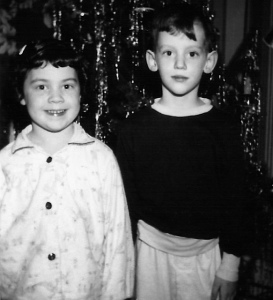
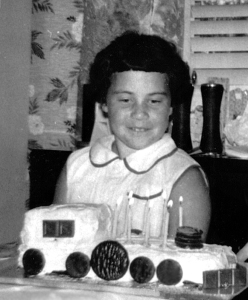 I was made fun of on the playground because I was a chubby kid. I was usually the last one picked to be on a team for red rover because I wasn’t all that speedy. This was normal kid stuff that had nothing to do with my hearing loss. I really don’t remember others asking why I couldn’t understand things. I had friends and I had a family who loved me and tried to support me as best they knew how. I had a home and was required to do chores as my brother and sister did. I don’t ever remember feeling slighted in my home because I couldn’t hear like my siblings. So, I think you can conclude, I was pretty much a regular kid who just couldn’t hear that well.
I was made fun of on the playground because I was a chubby kid. I was usually the last one picked to be on a team for red rover because I wasn’t all that speedy. This was normal kid stuff that had nothing to do with my hearing loss. I really don’t remember others asking why I couldn’t understand things. I had friends and I had a family who loved me and tried to support me as best they knew how. I had a home and was required to do chores as my brother and sister did. I don’t ever remember feeling slighted in my home because I couldn’t hear like my siblings. So, I think you can conclude, I was pretty much a regular kid who just couldn’t hear that well.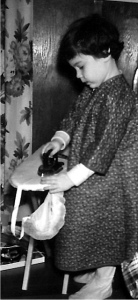 Several years ago many changes happened in my life. At the suggestion of a friend, I returned to a skill I had learned as a child from my grandmother that helped me to satisfy some of my needs. That skill was sewing.
Several years ago many changes happened in my life. At the suggestion of a friend, I returned to a skill I had learned as a child from my grandmother that helped me to satisfy some of my needs. That skill was sewing.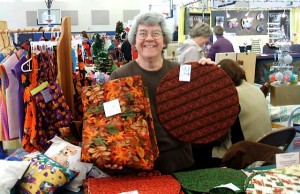 At the suggestion of this friend I began to sew again. She encouraged me to enter and sell some of my finished products in the
At the suggestion of this friend I began to sew again. She encouraged me to enter and sell some of my finished products in the 



















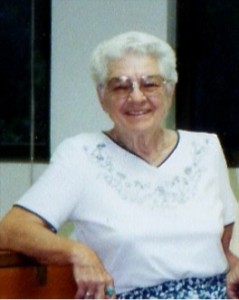
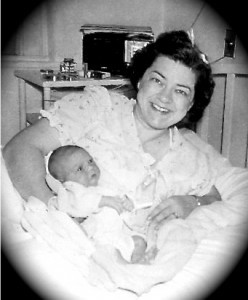

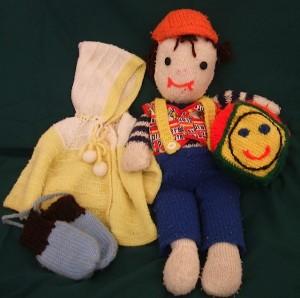
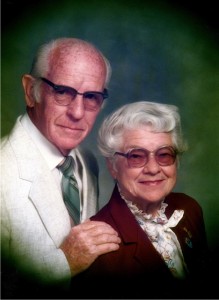 I recently found the following document while going through some papers written by one of my parents, I think by my father from the writing style. I don’t recall seeing this before and I have no idea why it was written. Here it is for you to read if you desire to do so. I will follow up in another blog with my own impression of some matters discussed below. ~ Marian
I recently found the following document while going through some papers written by one of my parents, I think by my father from the writing style. I don’t recall seeing this before and I have no idea why it was written. Here it is for you to read if you desire to do so. I will follow up in another blog with my own impression of some matters discussed below. ~ Marian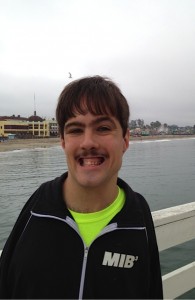 This is my friend Kolya. He is standing on the Santa Cruz Wharf. Behind him is the Boardwalk, but we gotta wait a couple of hours before they open. My daughter Rachel is with us.
This is my friend Kolya. He is standing on the Santa Cruz Wharf. Behind him is the Boardwalk, but we gotta wait a couple of hours before they open. My daughter Rachel is with us.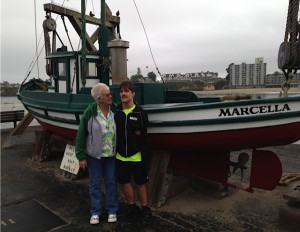 Kolya and I are standing in front of a cute little fishing boat named the Marcella, which is seeing held up by some kind of block and tackle system by its’ bow and stern. Kolya likes architectural details in objects, especially buildings and bridges. Boats are only somewhat interesting to him.
Kolya and I are standing in front of a cute little fishing boat named the Marcella, which is seeing held up by some kind of block and tackle system by its’ bow and stern. Kolya likes architectural details in objects, especially buildings and bridges. Boats are only somewhat interesting to him.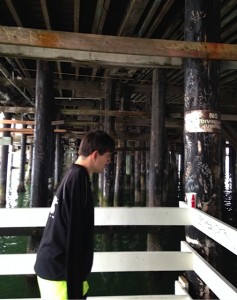 We take the stairs down to look under the wharf and find not only lovely architectural timbers that provide the support for the deck about, and… graffiti (a forbidden delight). There are seals near by, barking.
We take the stairs down to look under the wharf and find not only lovely architectural timbers that provide the support for the deck about, and… graffiti (a forbidden delight). There are seals near by, barking.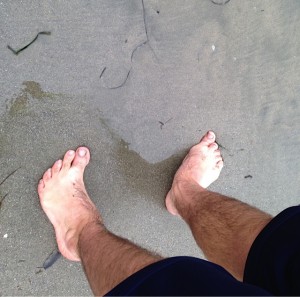 After walking the Wharf, we head out to the beach. He asks for his swimsuit but I did not bring suits for this trip. He asks many times for his suit.
After walking the Wharf, we head out to the beach. He asks for his swimsuit but I did not bring suits for this trip. He asks many times for his suit. Kolya explores the textures of the seaweed washed up on the beach as he walks by. He puts his right foot squarely in the middle of these messy mounds of green strands.
Kolya explores the textures of the seaweed washed up on the beach as he walks by. He puts his right foot squarely in the middle of these messy mounds of green strands.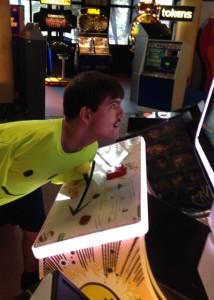 The arcade opens up and we go in to play a few games. Kolya does well handling the loud noise of these machines, but I know he will not last long. Rachel finds a game that will spew out tickets for the prizes he can get.
The arcade opens up and we go in to play a few games. Kolya does well handling the loud noise of these machines, but I know he will not last long. Rachel finds a game that will spew out tickets for the prizes he can get.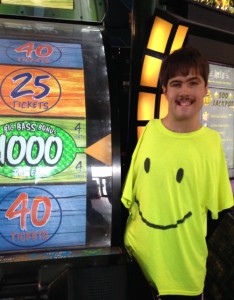 Tada! we score 1000 tickets! Way to go!
Tada! we score 1000 tickets! Way to go!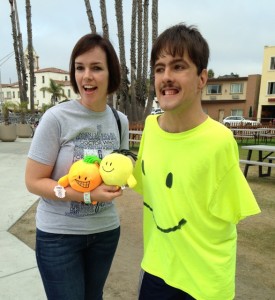 Rachel is holding the two creatures Kolya picked out for his prizes.
Rachel is holding the two creatures Kolya picked out for his prizes.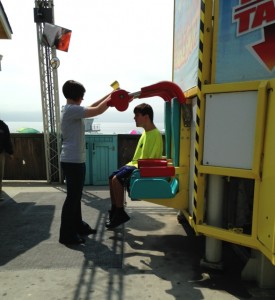 The Boardwalk opens and are we ready! The first ride Kolya picks out is the the up and down Freefall. Rachel buckles him in.
The Boardwalk opens and are we ready! The first ride Kolya picks out is the the up and down Freefall. Rachel buckles him in.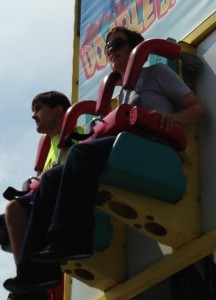 Going up, all smiles 🙂
Going up, all smiles 🙂 Freefall coming down!
Freefall coming down!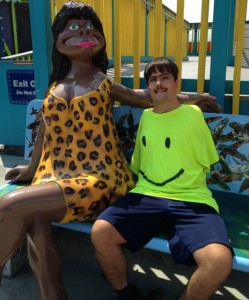 Going higher on the Freefall! The up/down motion is repeated many times on this ride. Kolya goes on the ride three times with Rachel. I’m so glad she is taking him and not me!
Going higher on the Freefall! The up/down motion is repeated many times on this ride. Kolya goes on the ride three times with Rachel. I’m so glad she is taking him and not me!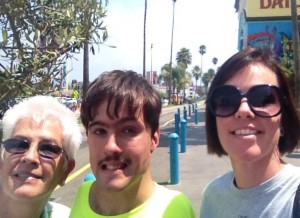 A group photo of Beth, Kolya, and Rachel
A group photo of Beth, Kolya, and Rachel After lunch another walk on the beach. He does not want to go home. A good trip 🙂
After lunch another walk on the beach. He does not want to go home. A good trip 🙂
